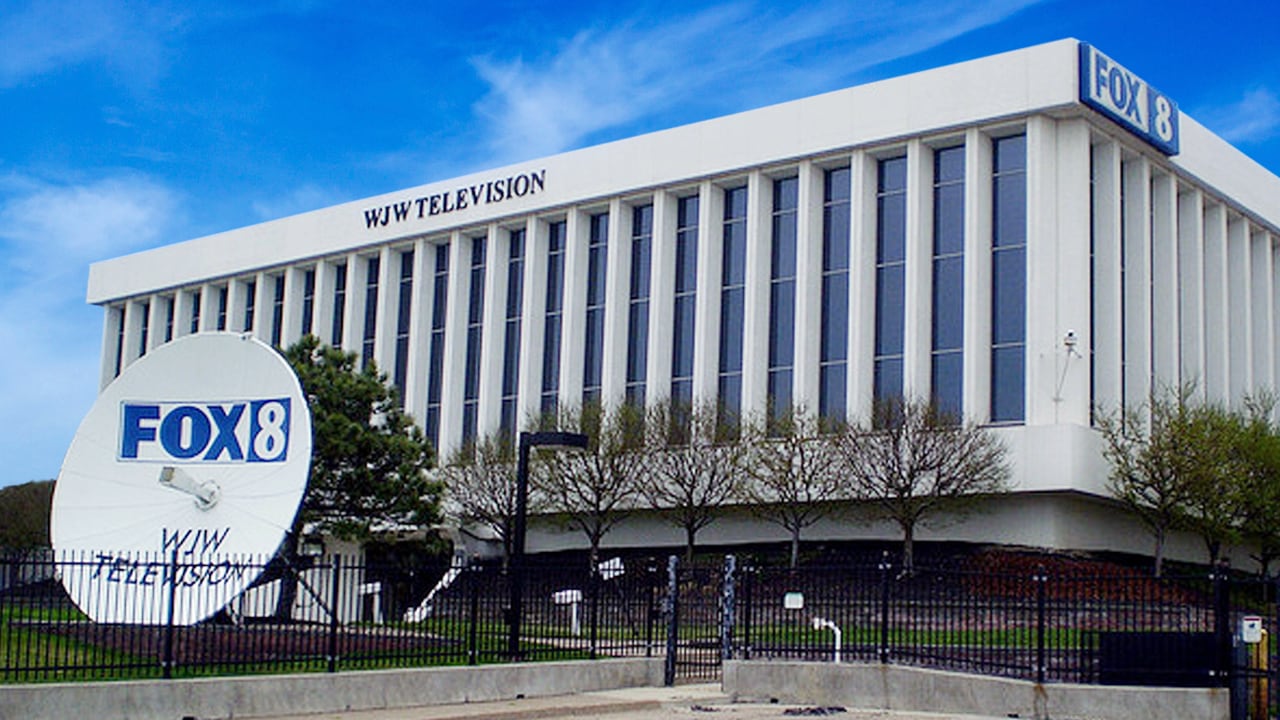By Michelle Chapman and Wyatte Grantham-Philips, Associated Press
In order to improve its local news offerings, Nexstar Media Group is paying $6.2 billion to acquire broadcast rival Tegna.
If the deal is accepted, it will unite two significant figures in American television and local news. In addition to operating networks like The CW and NewsNation, Nexstar currently manages more than 200 owned and partner stations throughout 116 areas in the country. Tegna now owns 64 news stations in 51 markets.
Two stations in Cleveland would be affected by the merger: Tegna’s WKYC Channel 3, the local NBC affiliate, and WJW Channel 8, the local FOX affiliate owned by Nexstar. Significant changes could result from the merger of the two businesses, most notably in the news departments of each station. Both stations have been contacted for comment by cleveland.com.
Nexstar Chairman and CEO Perry Sook said in a statement on Tuesday that the Trump administration’s initiatives give local broadcasters the chance to reach a wider audience, level the playing field, and more successfully compete with Big Tech and legacy Big Media companies that have unrestricted reach and substantial financial resources. Tegna, in our opinion, is Nexstar’s greatest bet for seizing this chance.
Nexstar stated on Tuesday that the agreement will also let it to provide advertisers with a greater range of digital and local broadcast advertising choices.
Nexstar will give $22 in cash for every outstanding share of Tegna’s equity.
The agreement might serve as a catalyst for even more broadcast sector mergers in the United States. Since its founding in 1996, Nexstar has expanded significantly through acquisitions over the past 20 years, and in 2019 it acquired Tribune Media to become the largest operator of local TV stations in the United States.
Tegna’s acquisition by Nexstar coincides with broader changes in regulations. The Federal Communications Commission, whose chairman Brendan Carr was selected by Trump and who must approve the deal, has long supported easing industry regulations. The FC declared on August 7 that it would be eliminating 98 broadcast regulations and standards that it deemed redundant, out-of-date, or obsolete.
The FCC stated that some of those regulations, which cover outdated and non-useful technologies, go back almost 50 years. According to Carr, such clauses are no longer in the public interest.
The FCC’s top four rule, which for a long time forbade owning more than one of the top four stations in a single market, was likewise overturned by the U.S. Court of Appeals for the Eighth Circuit in late July. Although the decision is still pending a months-long review by the FCC, it may greatly facilitate future industry mergers.
Both Tegna CEO Michael Steib and Nexstar CEO Sook made reference to this decision and praised Carr’s deregulation program in general during business earnings calls in early August, prior to Tegna and Nexstar publicly confirming merger talks.
During Tegna’s August 7 call, Steib stated, “We believe that deregulation is necessary, important, and coming.” He also pointed out that local broadcasters face major tech competitors who have no restrictions on their ability to compete.
Both Nexstar and Tegna offer digital news, mobile apps, and streaming services in addition to their main broadcast TV businesses. These services have been crucial to the industry as customers’ preferences for news and entertainment have changed.
Cord-cutting has had a particularly negative impact on broadcast TV, since more and more households are switching from cable or satellite subscriptions to online entertainment.
By the second part of 2026, the contract should be finalized. The shareholders of Tegna still need to approve it.
In premarket trade, Tegna’s and Nexstar’s shares increased 4.3% and 7.6%, respectively.
Joey Morona of cleveland.com contributed to this article.






